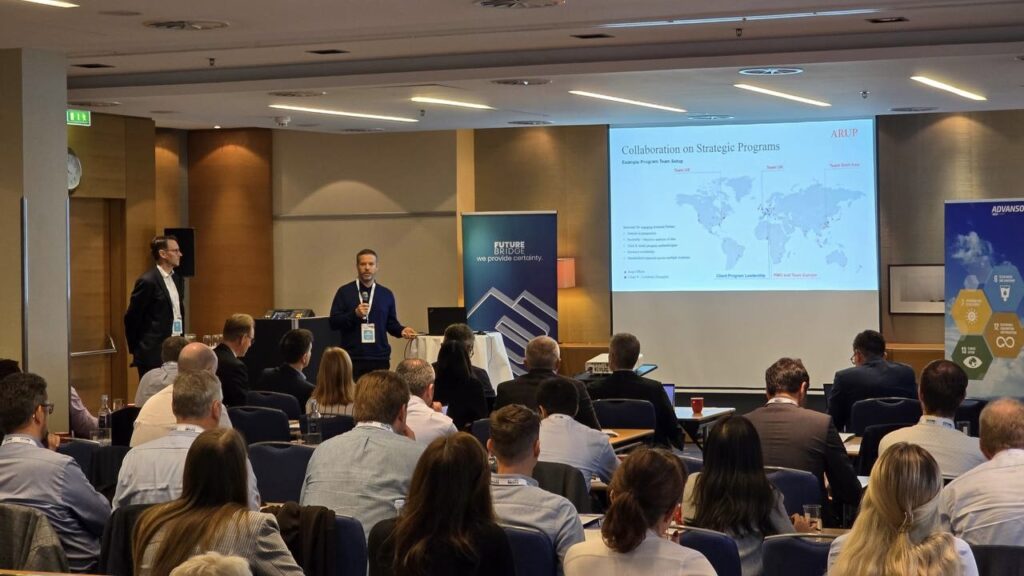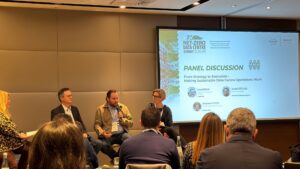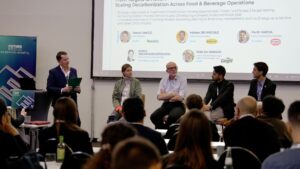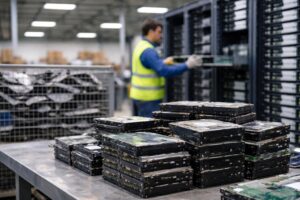The rise of global health needs & environmental necessities has made the life science industry come under increasing pressure than ever to transform its manufacturing landscape. The 3rd Net Zero Life Sciences Summit in Düsseldorf, Germany became the crossroads where this transformation took tangible shape. The gathering on 29-30 October 2024 witnessed breakthrough moments as industry veterans shared hard-won insights from their sustainability journeys. They challenged traditional assumptions about the trade-offs between environmental impact and pharmaceutical manufacturing excellence. So, this article focuses on the key sessions and shines the light on the sponsors that enabled the way.
3rd Net Zero Life Sciences Summit Recap: Let’s Know About The Valuable Sessions
The two-day 3rd Net Zero Life Sciences Summit brought together industry experts who shared their experiences, challenges, & solutions. The sessions covered everything from the rules around regulatory compliance to practical implementation strategies. This gave a broad view of sustainability in the life sciences. So, let’s delve into the main talks of this eye-opening event.
Compliance and Innovation: The Interplay of Net Zero Regulations in Life Sciences
Carsten Jasper, Sr. Director of QRM and CQV (R&D) at Charles River Laboratories discussed the challenges of implementing net zero roadmaps in the Life Sciences. Furthermore, the speaker explored Scope 1, 2, and 3 emissions in the pharmaceutical industry, highlighting best practices and state-of-the-art examples. The session also talked about whether regulations and compliance for quality might stifle innovation in the race to net zero
Navigating Scope 3 Emissions: Overcoming Challenges and Sharing Milestones in an SME pharma company.
Karen Pulley, Head Of Sustainability, Consilient Health, discussed the main difficulties involved in getting started on collating carbon emissions data. The speaker emphasized the importance of leveraging collected data for actionable insights and discussed ongoing hurdles in maintaining accurate data collection efforts. The speaker also talked about how important it is to cut back on Scope 3 emissions and some possible solutions to those problems.
A Global Approach to Decarbonising Life Sciences
Tim Fry, Director and Business Leader at Arup, and Joel Dunmore, Associate Director at Arup spoke about their experiences of successful sustainability program needs working with Arup’s global Life Science clients. Moreover, the speakers at the 3rd Net Zero Life Sciences Summit provided a definite structure to the gap between the strategy and the execution, managing the stakeholder expectations proactively, and delved into the technique of the balance between technical standardization and continual improvement. They also stressed strong technical analysis and cost-effective solutions for sustainable practices in the life sciences industry.

Automated Steam Trap Monitoring to Support Your Life Sciences Sustainability Goals.
Danny Vandeput, Sustainability Director of Emerson Europe, explained the advantages of using automated steam trap monitoring to reach sustainability targets. The speaker stressed that early recognition of unsuccessful traps saves steam leaks and in turn money and operating expenses. Additionally, the speaker even went on to describe how retaining steam loss helps to decrease greenhouse emissions and how getting information in real-time allows for better upkeep which in turn makes the system more reliable.
Net Zero within Sustainability Strategy: From Vision to a Roadmap
Isabel Robles, Global EHS Head at Esteve, discussed how to develop a trustworthy Net Zero roadmap. The speaker discussed challenges, opportunities, and barriers in implementing sustainability strategies. Furthermore, the speaker explored methods for transforming global long-term objectives into impactful site-specific measures. Additionally, the session also addressed managing uncertainties and adapting to future advancements in the pursuit of Net Zero goals.
Levers for Successful Decarbonisation in Life Sciences
Dr. Martin Kruska, Strategy & Business Development Manager for Sustainability at Siemens discussed a strategic way to decarbonize corporations. Furthermore, the speaker identified areas for optimization and decarbonization specific to the Pharma Life Sciences sector. Moreover, the session also stressed how important data is in designing solutions and optimizing processes to ensure industrial decarbonization success.
Decarbonization of the Pharma Industry
Michael Hell, Head of Sustainability at Merck Global Healthcare operations was the speaker of the session. The session discussed the overall direction of the pharmaceutical industry toward decarbonization. Moreover, the speaker explored what it takes to achieve net zero in a company’s operations and emphasized the need for collaboration and a paradigm-free approach to achieving scope 3 ambitions. The session also mentioned that pivotal problems must be resolved to achieve decarbonization.
Water Footprint Assessment: A Key Driver for Sustainable Water Management at a Thirsty World.
Jane Lei, Specialist of Corporate Water Footprint Assessment, TUM Alumni gave some information about the world and the regional water problems. The speaker talked about industrial water use and delved into water laws structure and ratings. Moreover, the session also talked about how firms can calculate their water footprint and how necessary it is to manage water in a sustainable way. This is because of the world’s water scarcity.
Do’s and Don’ts in the Electrification of the Life Sciences Sector – Success Stories.
Graciano Tornero, Iberia LATAM Regional Lead at EM3, discussed the electrification in decarbonization strategies for life sciences sustainability. The speaker at the 3rd Net Zero Life Sciences Summit talked about the lessons learned from installing heat pumps in the life sciences and pharmaceutical industries. The session also described step by step about the implementation of a heat pump that worked, giving real-world advice to those in the field.
PANEL DISCUSSION: Breaking Down the Barriers to Net Zero: Life Sciences.
The panel included Alfredo Diaz (Siemens), Isabel Robles (Esteve), Michael Hell (Merck KgA EFPIA), and Karen Pulley (Consilient Health). These experts gave their opinions on the obstacles of getting to Net Zero for the Life Sciences. This is using their wealth of backgrounds and positions in sustainability and energy management for various companies.
Achieving Co2 Neutrality in Pharmac Production: Journey, Milestones, & Challenges
Ulrich Schmöe, Global Engineering Director, NextPharma introduced a corporate initiative to reach CO2 neutrality in the production of pharmaceuticals. The speaker outlined the strategy, steps, and actions taken to implement this initiative in a dynamic environment. So, this gave insights into the journey from decision-making to completion of the project.
Sustainable Climate Solutions For The Pharma Sector
Anders Mønsted, Business Development Manager at Advansor, gave a talk about trends and issues in the pharmaceutical industry concerning sustainable climate solutions. The speaker focused on heating and cooling solutions, energy efficiency measures, and also presented case studies from the pharmaceutical industry. So, this gave practical applications of sustainable technologies.
Optimizing Air Change Rate in Clean Rooms: A Focus on GMP, Sustainability, and Energy Efficiency
Srdjan Gojkov, Associate Director, Global Quality Engineering, Lonza spoke about air change rates optimization in clean rooms. The speaker talked about what GMP is and debunked various myths and misconceptions. Moreover, the session also discussed what the current industry standards are. So, there was a stress on the delicacy between keeping GMP compliant and making the cleanroom operations more sustainable and energy efficient.
Use of Heat Recovery Systems in Pharmaceutical Processes
Manel Fernandez, Lead of HVAC at Eli Lilly and Company, presented the approaches that would be placed in the use of heat recovery systems in pharmaceutical processes. Furthermore, the speaker covered basic design principles, applications in dehumidification and adiabatic cooling. The session also provided a case study to illustrate the practical implementation and benefits.
Roadmap to Energy Efficiency In The Pharmaceutical Business
Robert Chabros, Project Manager and EPCM Expert at Polfa Tarchomin S. A. presented the way to energy efficiency in the pharma sector. Furthermore, the speaker talked about greenhouse gas reduction schemes, energy consumption input data, current and proposed energy-saving projects, and their payoffs. The session also focused on output data on current energy consumption and summarized key strategies for improving energy efficiency.
Bayer Pharmaceutical’s Data Usage for Carbon Footprinting
Thomas Gosmann, Sustainability Lead in Pharma Engineering at Bayer AG, shared insights on Bayer Pharmaceutical’s approach to carbon footprinting. The speaker at the 3rd Net Zero Life Sciences Summit discussed the initial piloting steps, the use of SAP footprint manager, challenges in ensuring data accuracy, and methods for calculating the company’s emissions. This session also gave insights into the implementation of carbon footprinting in a large pharmaceutical company.
PANEL DISCUSSION: How Can Corporate Goals Of Sustainability Align with Operational Change?
The panel discussion featured Srdjan Gojkov (Lonza), Ulrich Schmöe (NextPharma), Robert Chabros (Polfa Tarchomin S.A), and Carsten Jasper (Charles River Laboratories). These industry experts explored strategies for aligning corporate sustainability goals with operational changes. This is drawing from their diverse experiences in quality engineering, global engineering, project management, and quality risk management within the pharmaceutical and life sciences sectors.
Partners: The 3rd Net Zero Life Sciences Summit
The 3rd Net Zero Life Sciences Summit’s success was greatly enhanced by the participation and support of industry-leading partners. Moreover, their expertise and contributions significantly impacted the event’s objectives and outcomes. So, let us take a look at them:
Siemens – Gold Sponsor
Siemens, a global technology powerhouse, lent its knowledge of smart infrastructure and green solutions to the summit. Their focus on combining real and digital worlds to drive sustainable infrastructure perfectly aligned with the 3rd Net Zero Life Sciences Summit’s objectives. Moreover, the addition of Siemens brought a more technical depth to the event. This is with emphasis on building automation, electrification, and digital transformation in the life sciences.
Emerson – Silver Sponsor
Emerson brought the latest in automation and software solutions to the front of everyone’s mind when it comes to sustainability. Furthermore, their expertise in helping manufacturers optimize operations, protect personnel, and achieve sustainability goals through innovative technologies provided valuable insights for attendees seeking practical solutions to their sustainability challenges.
Arup – Bronze Sponsor
Arup added significant value through their extensive experience in sustainable development and engineering expertise. Moreover, they have a global outlook on the design and management of sustainable facilities. Their strategic approach to energy reduction and decarbonization also gave attendees some hands-on knowledge to apply sustainable solutions.
Advansor – Bronze Sponsor
Advansor’s expertise in sustainable CO2 climate solutions proved invaluable for attendees seeking efficient cooling and heating solutions. Their experience in manufacturing climate-friendly refrigeration systems and their focus on sustainable technologies aligned perfectly with the 3rd Net Zero Life Sciences Summit’s objectives of promoting environmentally conscious solutions.
EM3 – Presenting Partner
EM3, the presenting partner, contributed a decade of experience in industrial energy innovation at the summit. Additionally, their proven track record in delivering significant reductions in carbon emissions and energy costs through innovative solutions made them an ideal partner for facilitating discussions on sustainable energy future in the life sciences sector.
To Sum Up
The 3rd Net Zero Life Sciences Summit successfully brought together industry leaders, experts, and solution providers. This is to address the crucial challenges of sustainability in the life sciences sector. Moreover, the comprehensive sessions and valuable insights shared during the event have set a strong foundation for future sustainability initiatives in the industry. To stay updated with the latest developments and participate in such transformative events, make sure you look out for information about upcoming sustainability-focused summits/ conferences.




